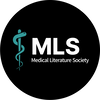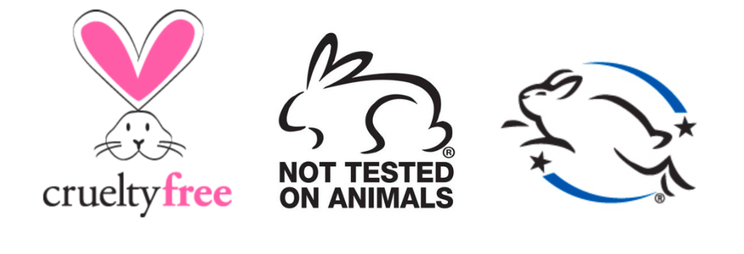Image retrieved from Pascua, 2019
Su Bin Yoo, Class of 2021
Recently, I have noticed that half of my makeup drawer has some kind of a label that I never really paid attention to - vegan, cruelty-free, and so on. As a consumer, finding vegan products has not been a priority to me. Even so, I owned vegan and cruelty-free products from 6 different brands. For a consumer like me to own so many vegan and cruelty-free products, there must be a general trend in the cosmetic industry to move towards eco-friendly, ethical products and marketing (Cheng, 2019).
As expected, there has been a surge of new labels being thrown around on cosmetic products in the past few years. This coincides with the recent movement to bring more awareness to making eco-friendly choices in general such as the vegan lifestyle to not only protect the animals but also to reduce carbon footprint. As it is in any other aspect of life, It is great that consumers are choosing to be more conscious in purchasing cosmetics. The issue is that people do not stop to think about what these labels really mean. How are they regulated? Does anyone know exactly what each means?
The global vegan market is predicted to reach the CAGR (compound annual growth rate) of 7.1% in the period of 2018 - 2023 (Global Vegan Cosmetics Market). With this kind of market expansion, it can only be expected that more and more brands would want to claim as many labels to target those consumers. Chief Strategy Officer at HCT Group, one of the manufacturers of beauty products, stated that “[now] there are more brands asking for specifically vegan formulations — or they may not initially ask, but at some point in development they’re like, ‘Wait, hold on — is this vegan?’” (Thomas, 2018). While we are moving in a positive direction, a closer look at what these labels mean can be alarming.
No animal ingredients. Cruelty-free. Not tested on animals. 100% vegetarian. 100% vegan. As with any label without an official endorsement, there is no way to verify these statements. Anyone can slap these labels on a product and claim that they are legitimate. The brands are also free to interpret the label in any way they want. One might think that no animal ingredients mean vegan, but they may define it more loosely to include animal ingredients that are not a product of killing animals. Another example of a misleading label is not tested on animals, which does not mean that the ingredients were not tested on animals. As such, a label on the product without an accredited label, consumers should be skeptical of their value.
On the other hand, there are some organizations that provide some level of regulation. Some of the examples are cruelty-free label by PETA, not tested on animals label by Choose Cruelty Free, and the not tested on animals label by Leaping Bunny (Ethical Elephant, 2015). While these carry more authority than plain labels from the companies, they rely on the information that the brands provide, and none of them offer regular monitoring nor testing with the exception of Leaping Bunny (Ethical Elephant, 2015). Overall, the level of regulation is anything but subpar.
This shift in the beauty industry to be more conscious of their product development and ingredients was brought on by the demand for more ethical products and the consumers’ expectations for brands to deliver them. In light of more brands willing to invest in product development for more eco-friendly and ethical products, it is important that the consumers demand higher standards of control for these labels to make their efforts count.
As expected, there has been a surge of new labels being thrown around on cosmetic products in the past few years. This coincides with the recent movement to bring more awareness to making eco-friendly choices in general such as the vegan lifestyle to not only protect the animals but also to reduce carbon footprint. As it is in any other aspect of life, It is great that consumers are choosing to be more conscious in purchasing cosmetics. The issue is that people do not stop to think about what these labels really mean. How are they regulated? Does anyone know exactly what each means?
The global vegan market is predicted to reach the CAGR (compound annual growth rate) of 7.1% in the period of 2018 - 2023 (Global Vegan Cosmetics Market). With this kind of market expansion, it can only be expected that more and more brands would want to claim as many labels to target those consumers. Chief Strategy Officer at HCT Group, one of the manufacturers of beauty products, stated that “[now] there are more brands asking for specifically vegan formulations — or they may not initially ask, but at some point in development they’re like, ‘Wait, hold on — is this vegan?’” (Thomas, 2018). While we are moving in a positive direction, a closer look at what these labels mean can be alarming.
No animal ingredients. Cruelty-free. Not tested on animals. 100% vegetarian. 100% vegan. As with any label without an official endorsement, there is no way to verify these statements. Anyone can slap these labels on a product and claim that they are legitimate. The brands are also free to interpret the label in any way they want. One might think that no animal ingredients mean vegan, but they may define it more loosely to include animal ingredients that are not a product of killing animals. Another example of a misleading label is not tested on animals, which does not mean that the ingredients were not tested on animals. As such, a label on the product without an accredited label, consumers should be skeptical of their value.
On the other hand, there are some organizations that provide some level of regulation. Some of the examples are cruelty-free label by PETA, not tested on animals label by Choose Cruelty Free, and the not tested on animals label by Leaping Bunny (Ethical Elephant, 2015). While these carry more authority than plain labels from the companies, they rely on the information that the brands provide, and none of them offer regular monitoring nor testing with the exception of Leaping Bunny (Ethical Elephant, 2015). Overall, the level of regulation is anything but subpar.
This shift in the beauty industry to be more conscious of their product development and ingredients was brought on by the demand for more ethical products and the consumers’ expectations for brands to deliver them. In light of more brands willing to invest in product development for more eco-friendly and ethical products, it is important that the consumers demand higher standards of control for these labels to make their efforts count.
Works Cited
Cheng A. 2019 Feb 26. Why You Should Care About Vegan Beauty. The New York Times. https://www.nytimes.com/2019/02/26/style/why-you-should-care-about-vegan-beauty.html.
Ethical Elephant. Cruelty-Free and Vegan Labels & Logos Explained. 2015 Aug 6. Ethical Elephant. https://ethicalelephant.com/cruelty-free-vegan-labels-logos/.
Global Vegan Cosmetics Market - Segmented by Product Type, Distribution Channel, and Geography - Growth, Trends and Forecasts (2018 - 2023). India, Telangana: Mordor Intelligence.
Pascua J. 2019 Oct 2. Make-up pouch [photo]. Pexels. https://www.pexels.com/photo/cosmetic-products-3018845/.
Thomas E. 2018 Oct 23. Vegan Makeup: The Latest Millennial Beauty Fixation. WWD. https://wwd.com/beauty-industry-news/beauty-features/vegan-makeup-millennial-beauty-1202885433/.
Cheng A. 2019 Feb 26. Why You Should Care About Vegan Beauty. The New York Times. https://www.nytimes.com/2019/02/26/style/why-you-should-care-about-vegan-beauty.html.
Ethical Elephant. Cruelty-Free and Vegan Labels & Logos Explained. 2015 Aug 6. Ethical Elephant. https://ethicalelephant.com/cruelty-free-vegan-labels-logos/.
Global Vegan Cosmetics Market - Segmented by Product Type, Distribution Channel, and Geography - Growth, Trends and Forecasts (2018 - 2023). India, Telangana: Mordor Intelligence.
Pascua J. 2019 Oct 2. Make-up pouch [photo]. Pexels. https://www.pexels.com/photo/cosmetic-products-3018845/.
Thomas E. 2018 Oct 23. Vegan Makeup: The Latest Millennial Beauty Fixation. WWD. https://wwd.com/beauty-industry-news/beauty-features/vegan-makeup-millennial-beauty-1202885433/.


